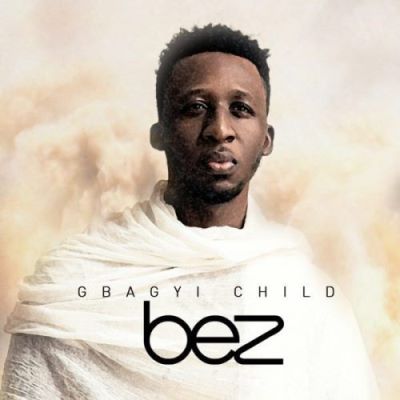When looking at northern Nigeria from the outside, many folks often conflate tribe and language. Yes, most people from the north speak Hausa but no, not everybody from the north is Hausa. There are hundreds of other northern tribes, Gbagyi is one of the better known ones.
If this is the first time you heard about them, then you have Bez to thank. In naming his sophomore album Gbagyi Child, the singer has embraced his heritage and placed his historically misunderstood people on the map.
On the cinematic “Home for Gbagyi”, he paints a picture of what a typical Gbagyi community looks like, a picture so convincing that it makes you want to pack your things and go along with Bez whenever next he’s visiting –
I could tell you are the place, where gold is like a yellow haze
And everybody has a smile and crying is for the little child
The singer is normally bright and engaging but on this song, he takes things up a notch and sounds damn near telekinetic. To add to the imagery, Bez and Cobhams went out of their way and traveled to a village in Karu – an area bordering Abuja and Nasarawa where he attended high school – got local instrumentalists to play a 3 hour set and then they use the output from that session to form the base of “Home for Gbagyi”. As far Bez the songwriter and storyteller goes, this record is arguably the high point.
The low point is when he tries to do something he didn’t do much on his first album Super Sun and that’s to write the hooks of songs like “If to Say” and “You Suppose Know” in pidgin. The attempts to broaden his listener base is admirable but if English isn’t your first language, an Englishman would be able to tell when you speak it. It’s the same thing with pidgin, so while most Nigerians speak some variant or the other, there are certainly those who are more fluent than others.
Thankfully, the album doesn’t spend long in that low, compromissory space at all, Gbagyi Child operates at that high level of musicianship that we’ve come to expect when Bez and Cobhams work together. There’s a Yemi Alade feature that would hopefully make the remix of “You Suppose Know” easier to play on the radio and the album’s sappy, 3 year old lead single “My Baby” has certainly done the rounds but other than those two, there aren’t any records on here that have that instant crossover appeal of, say, a “Stupid Song”.
In fact, quite like the the tribe it pays homage to, Gbagyi Child assumes a somewhat introverted personality. The album’s only other feature is Simi, who seems to be the go-to girl for memorable duets in 2016. “Breathe” is a slightly sped up pop rock number where both singer’s warm voices dovetail nicely but for the most part, this project is all Bez Idakula, his guitar and a group of musicians that play important roles in helping the singer tell his story.
“If I Was A Baby” describes a feeling that most recently-grownup people can relate to; Bez contemplates giving up on the trap called adulthood but is ultimately grateful for the blessings that along come with it. He talks about love too but mostly with a third party narrative. A lot has changed in the singer’s personal life since he last talked to his fans on Super Sun – a lovely wife, a baby – records like “There’s a Fire” and “Hold You Down” only scratch the surface of how incredible that love must feel.
Gbagyi Child has come 5 years after Super Sun, if the average artist had taken that kind of time off, they would have lost their fanbase and had to start looking for a 9-to-5 of some sort. Bez’ musicianship has empowered him to become a touring act always worth the price of admission and his brand of alternative soul has enabled him cultivate a niche audience that can probably afford that price whatever it may be. This album briefly flirts with appealing to a wider demographic but ultimately, Gbagyi Child is a thoughtful gift to Bez’ core fans for waiting for their man for this long.


